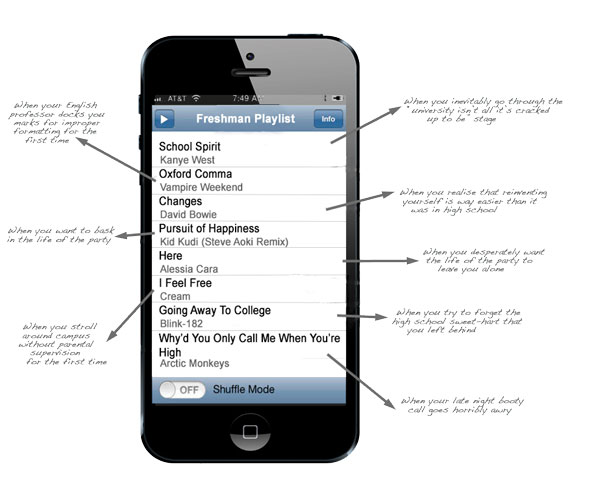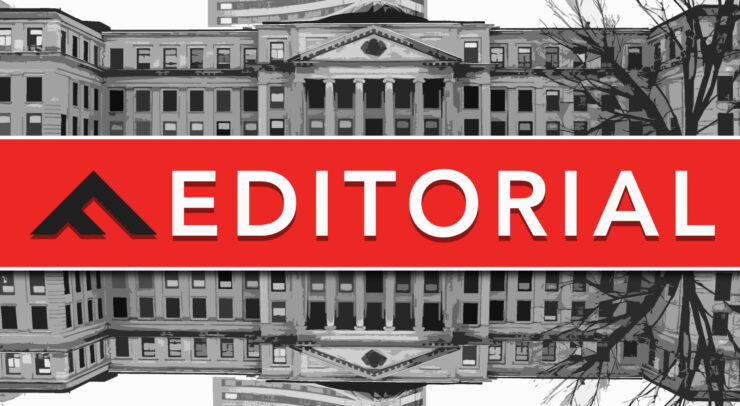In honour of our last regular issue of 2016, we remember the (few and far between) bright spots in this year’s news
This just in—Mike Pence ♥s Planned Parenthood
For anyone who isn’t already fuming about United States president-elect Donald Trump’s vice-president pick, try imagining what it would be like for a rape survivor to have reduced reproductive freedoms, or what it would feel like for her to be forced to have a funeral for her aborted child if she managed to terminate the pregnancy. Scary picture, right? Well, vice president-elect Mike Pence doesn’t think so. In fact, in his work he advocates for both of these things. Luckily, some Americans aren’t taking his ignorant attitude lying down. Since Trump’s election, Planned Parenthood has received an estimated 46,000 donations from across the country in Pence’s name, meaning Pence has received 46,000 “thank you” letters from Planned Parenthood. While this story doesn’t outweigh the horrible reality that this imbecile has taken the vice-president seat, it is heartwarming and amusing to see people band together in the name of defending America’s progress in reproductive freedom—and to remind Pence that women won’t be going down without a fight.
—Savannah Awde, Editor-in-Chief
Breaking: It’s easier than ever to eat your feelings
As this year comes to a dismal end with Brexit and the election of Trump—among many other gloomy outcomes—2016 seems to have been a bit of a mess. The one redeeming news article I recently read was that the price of avocados will drop sometime after October. Thankfully, now we can eat our feelings in a delicious and semi-healthy way with more affordable guacamole.
—Jaclyn McRae-Sadik, Visual Editor
Brain research gets a boost across the globe
Much of how the human brain works is a still a mystery, but this year scientists took a big step towards shining a light on how our brains work. In June, a team of neuroscientists led by Matthew Glasser and David Van Essen at Washington University in St. Louis published a paper in the journal Nature, detailing how they had mapped out 180 distinct areas of the human cortex, up from 83. This could have huge implications for finding markers for all sorts of neurological diseases and mental illnesses, and even help neurosurgeons be safer and more precise. These researchers have even developed an algorithm to make their data available to doctors all over the world.
—Eric Davidson, Opinions Editor
Sports fans say no promise is too big to bear
In case you missed it, on Nov. 2 the Chicago Cubs won the World Series for the first time in 108 years. While a number of notable stories came out of their historic victory, perhaps the most touching is that of a boy who made a pact with his father that when—not if—the Cubs finally made the world series, they would watch the games together. That boy is now 68-year-old Wayne Williams. On Nov. 2, he drove 650 miles to Greenwood, Indiana cemetery, where his father is buried. He sat beside his father’s grave with the game on his smartphone, and listened together with him as the Cubs won the World Series in overtime.
—Nico Laliberté, Sports Editor
North America seeks solace in the stars
With all the horrible shit that’s happened on planet Earth in 2016, I wouldn’t fault anybody if they felt tempted to look to the stars to find hope and inspiration. For the last 25 years, the Hubble Space Telescope has facilitated that very function, providing us with astonishing images of stars, planets, galaxies, and other cosmic anomalies to spark our imagination. But rather than resting on their laurels, NASA has just finished construction of the James Webb Space Telescope (JWST), which puts the Hubble to shame. On top of being able to see infrared images, the JWST also sports 270 square feet worth of hexagonal beryllium-coated mirrors, which makes it effectively 100 times more powerful than its predecessor. Because of these new technological advancements, the JWST can give us a peek into previously undiscovered regions of both space and time. So sure, the last 11-and-a-half months may have been terrible, but NASA is showing us that, even in 2016, scientific innovation is still out of this world.
—Kyle Darbyson, Managing Editor
New study shows that memes are in fact the best medicine
Amongst the shock and worry of the U.S. presidential election, it’s stress-relieving and humbling to see President Obama and vice-president Joe Biden’s friendship on display. Numerous funny memes have been released with Biden playing the role of the mischievous child and Obama as the older and wiser sibling. There were memes about toying with Trump and memes about Pence seeing Hamilton. With the great upset of the U.S. election, at the very least Obama and Biden memes poke fun at Trump and provide some much-needed comic relief!
—Alexa-Eliza Carter, Features Editor





